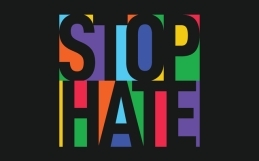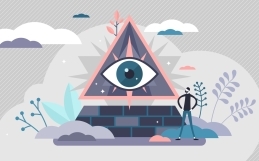“The people who trigger us to feel negative emotions are messengers. They are messengers for unhealed parts of our being.” –Teal Swan
“That made me so angry,” she said. “It just really upset me, and I don’t know why. Bigger things have bothered me less.” These words came from one of my clients, Kathy, who described her emotional triggers to me. An emotional trigger is anything that sets you off emotionally. It’s usually personal to you and often stems from past experiences. A person can experience being triggered by reverting to unresolved or unaddressed feelings and behaviors while in a traumatizing situation. When Kathy’s husband told her he wanted her to cook more, she got furious; what she couldn’t figure out was why. She wondered, “Why couldn’t I just say, ‘Why do you want me to cook more?’ Or I could have just said no. But instead, I blew up and started throwing things.”
After we spoke a little more, Kathy explained that her father always expected her mother to take care of everything in the house. She cooked, cleaned, took care of the kids, and expected the table to be perfectly set for dinner. Kathy swore she would never be the homemaker because she would marry someone who would contribute more than just financially. So when her husband asked her to cook more, she took it as a sign of disrespect. As Kathy explained to me, “It triggered all the emotions I had as a child watching my mom slave over the family as if it had been expected of her. I found my father to be so disrespectful of her needs. However, I didn’t make the connection until now.”
Reasons for Triggers
Your emotional response gets triggered when you perceive that someone is taking something important away from you. It makes sense, right? Kathy was scared that her husband was trying to take away her freedom and independence, something she had worked hard to establish to be different from her mother. This perspective led her to react with anger toward her husband. Later, she wanted to understand why it made her so angry. She looked within to find an answer. If we aren’t aware, it’s easy to react in ways triggered by our past instead of thoughtful responses. Reacting can hurt our relationships in the present. When activated, the key is to catch ourselves and realize that we’re overreacting like Kathy tried to do. By going through this process, we can discover if whatever is triggering us is worth making a fuss about or not.
After realizing that she was more upset about her past than her husband’s request, Kathy decided to talk to him. He explained that he would be working late for the next month and wouldn’t make it home in time to cook. Since Kathy tended to get home earlier, he hoped she would cook dinner on his late nights, so he wouldn’t have to pick up something unhealthy on the road. After communicating with her husband, Kathy expressed her triggers and shared with him how he could better approach her in the future. She was also able to listen to her husband’s request without interpreting it as a demand.
When something upsets you or makes you feel uncomfortable, it’s helpful to look at the situation from a more logical perspective. Are you just losing it, or did the problem call for you to get upset? Is the other person denying your needs, or are you taking things too personally? If someone is genuinely ignoring your needs, can you either ask for what you need or work on letting it go?
If you don’t consciously acknowledge the need triggering your emotional reaction, you may feel like a prisoner of your emotions. On the other hand, if you honestly look at yourself and see the expectations you hold on to, you can begin to see life more objectively. From this perspective, you are free to choose your responses to people in the future. You’ll start to take more responsibility for yourself and remain more emotionally neutral.
Sometimes our emotions call for us to be as sophisticated and educated as our logical brains. It is, therefore, of great importance to explore why you’re feeling a certain way, how you can respond to it, and how you can allow it to challenge and inspire you at the same time. When you educate yourself about your reactions, you can turn them into reasonable responses in the future.
Did you enjoy reading this article?
Once a week I send out a newsletter with new articles and unique content for readers. It is my way of staying in touch with you and giving you free advice based on some important topics.
Click here to sign up for my newsletter.





